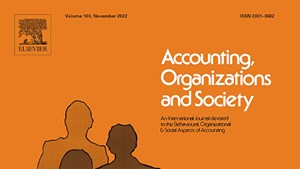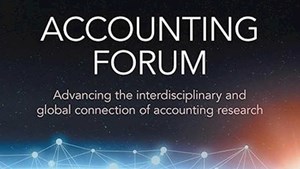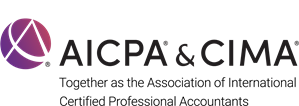14th Interdisciplinary Perspectives on Accounting Conference at Royal Holloway University of London, 3-5 July 2024.
The School of Business and Management is delighted to announce that Royal Holloway University of London will be hosting the 14th Interdisciplinary Perspectives on Accounting (IPA) Conference in 2024.
The conference is an established forum for research into the social, political and organisational aspects of accounting. It brings together accounting researchers with broad social science interests from a range of different disciplinary perspectives such as anthropology, history, philosophy, sociology and political economy.
In line with past conferences, IPA 2024 aims to provide accounting scholars with a unique forum for further developing interdisciplinary debate on accounting research, its multidimensional impact on society from diverse methodological stands, highlighting emerging paths and innovative lines of enquiry.
As well as connecting scholars from a broad network of institutions the conference will benefit from the coordinated efforts of three research centres based in the School of Business and Management at Royal Holloway, which are strongly committed to interdisciplinary research perspectives: the Centre for Critical and Historical Research on Organisation and Society (CHRONOS), the Centre for Research into Sustainability (CRIS), and the Digital Organisation and Society Research Centre (DOS).
We invite researchers from all areas of the social sciences and humanities to submit papers. The conference format is intended to provide presenters with a constructive forum to discuss their research. All papers will undergo a double-blind review process. Accepted papers will be presented by a discussant, the author(s) will respond, and an open discussion will follow. Therefore, we require presenters of accepted papers to be willing to act as discussants and submitting authors to act as reviewers.
The conference is preceded by the Emerging Scholars Colloquium (ESC), 1-2 July 2024. PhD students conducting their PhD research in the field of interdisciplinary accounting research are encouraged to submit their work and attend.
We are looking forward to welcoming you to the beautiful campus of Royal Holloway for an engaging and stimulating event!
For more information, please contact: ipa2024@rhul.ac.uk
- Key Dates -
IPA Conference: July 03 – 05 2024
Paper submission open: December 15 2023
Paper submission deadline: January 31 2024
Notification of acceptance: March 28 2024
ESC: July 01 – 02 2024
Paper submission open: December 01 2023
Application deadline: February 05 2024
Notification of acceptance: March 25 2024 - Conference Chairs -
Giulia Achilli, Elena Giovannoni, Susan O’Leary, and Helen Tregidga - Organising Committee -
Gloria Agyemang, Yiannis Anagostopoulos, Rebecca Bolt, Junyuan Chen, Anastasios Evgenidis, Teddy Foster, Julinda Nuri, Christian Stadler, Saffet Uygur, Ling Xiao, and Nana Zhao - Organisers of the Emerging Scholars Colloquium -
Christopher Napier, Christopher Nobes, Leonardo Rinaldi, and Saffet Uygur
Please check IPA Joining Instructions at this link.
Please check IPA Programme here.
A list of all participants in the 14th IPA conference can be found at this link.
Please note: Conference attendees eligible to vote in the UK General Election on 4th July 2024 are reminded that they have until 5pm on 19th June 2024 to apply for a postal vote. More information at this link.
Keynote Speakers
Lilie Chouliaraki

The weaponization of victimhood: the politics of pain and power today
Why is being a victim such a popular identity today? Who exactly claims to be a victim? Who benefits and who loses from the struggles over victimhood in our public cultures? Drawing on examples from the struggle over reproductive rights in the US and the Covid-19 pandemic, I will discuss how claiming victimhood is about claiming power. My talk will draw attention to the politics, actors and platforms through which claims to pain are systematically appropriated and weaponized to serve the interests of powerful actors and groups. In so doing, it will highlight the ways in which social struggles over victimhood in public discourse and social media are struggles about who owns the languages of pain, who deserves to be protected as a victim and who should be punished as perpetrator. Particularly in the context of far-right populism, I argue, we need to be aware of and critically interrogate the strategies of victimhood that are used in public discourse to perpetuate old exclusions and introduce new injustices in society.
Lilie Chouliaraki is Professor of Media and Communications at the London School of Economics and Political Science. Her work examines the ethical and political complexities of communicating human suffering in the media with emphasis on four domains in which suffering appears as a problem of communication: disaster news; humanitarian and human rights advocacy; war and conflict reporting; and migration news. Her recent work is on the cultural politics of victimhood in western societies.
Her books include 'Discourse in Late Modernity’ (1999), ‘The Spectatorship of Suffering’ (2006), ‘The Soft Power of War’ (ed., 2008), ‘The Ironic Spectator’ (2013), ‘The Routledge Handbook of Humanitarian Communication’ (co-ed, 2021) and ‘The Digital Border. Mobility, Technology, Power (2022). Lilie has also published over sixty articles in peer-reviewed journals and edited volumes. She is the recipient of three international research awards, including the Outstanding Book of the Year and Lifetime Fellowship of the International Communication Association.
Carlos Larrinaga

The matter of sustainability accounting
 Carlos Larrinaga is Professor of Accounting at the University of Burgos, Spain. He is associated with the Centre for Social and Environmental Accounting Research, University of St Andrews. He has studied the interplay between accounting and the natural environment since the early nineties and still perseveres. On that subject, Carlos has published in several interdisciplinary accounting journals. He serves on the editorial board of various journals and is an Associate Editor of the European Accounting Review.
Carlos Larrinaga is Professor of Accounting at the University of Burgos, Spain. He is associated with the Centre for Social and Environmental Accounting Research, University of St Andrews. He has studied the interplay between accounting and the natural environment since the early nineties and still perseveres. On that subject, Carlos has published in several interdisciplinary accounting journals. He serves on the editorial board of various journals and is an Associate Editor of the European Accounting Review.
Roundtable on “Interdisciplinary Accounting Research: Moving Forward”
The roundtable will reflect on the meaning of interdisciplinary accounting research and consider future challenges and opportunities for impactful research that contributes to accounting practice and scholarship.
Chair: Gloria Agyemang, Royal Holloway University of London
Panelists:
- Christine Cooper, University of Edinburgh
- David Crvelin, HEC Paris
- Ivo de Loo, Nyenrode Business University
- Paolo Quattrone, Alliance Manchester Business School
- Farzana Tanima, University of Wollongong
Gloria Agyemang is a Professor of Accounting at the School of Business and Management at Royal Holloway, University of London. Gloria’s diverse research interests include Performance Management; NGO Accountability, Management Control in Public Sector Organisations; Funding Issues in Public Sector Organisations; the Management of Educational institutions; Race, Culture and Diversity issues; Social and Environmental issues in Less Developed and Emerging Economies; Accounting for Migration-Immigration and Accounting for Crime. Gloria’s publications appear in leading accounting journals including Accounting, Auditing and Accountability; Critical Perspectives on Accounting and Accounting Forum. She is on the editorial board of several accounting journals and is committed to fostering curiosity and knowledge with emerging scholars in the field. Gloria was awarded the British Accounting and Finance Association (BAFA) 2020 Distinguished Accounting Academic Award and was inducted into the AAAJ APIRA Hall of Fame in 2022.
Christine Cooper is a professor of accounting at Edinburgh University. Her research is concerned with the economic, political and social impact of accounting on our everyday lives. This has produced publications in diverse social arenas including social and environmental accounting, gender, privatization, deskilling of accountants and bookkeepers, insolvency, taxation, accountability and accounting in the South African apartheid era. She is currently working on a projects concerned with government accountability and prisons. She holds a PhD from the University of Strathclyde and a Masters’ degree from the London School of Economics. Christine is on the editorial boards of several international academic journals and is a board member of Future Economy Scotland (https://www.futureeconomy.scot/about).
David Crvelin earned his Ph.D. from the University of Innsbruck, Austria. He then worked as a post-doctoral research fellow at London School of Economics and Political Sciences (LSE) before joining HEC Paris in 2017. David’s main research focus is on the role of management control systems in the non-profit sector and civil society more generally. His current research projects also include the study of cost management algorithms in high-reliability infrastructures. In terms of broader theory development, David is particularly interested in the rather mundane aspects of accounting practice in everyday life.
Ivo De Loo is Professor of Management Accounting & Control at Nyenrode Business University, Breukelen (the Netherlands). His research interests focus on how management accounting and control is shaped and changed in organizations, and what this means for the discharge of accountability, mainly using insights from practice theory and the application of visual and (auto)ethnographic research methods. He has also developed an interest in research methodology and interpretive research. He currently is a member of the editorial advisory board of Accounting, Auditing & Accountability Journal, and the editorial board of Qualitative Research in Accounting & Management.
Paolo Quattrone is Professor of Accounting, Governance and Society at the Alliance Manchester Business School, where he also leads the Centre for the Analysis of Investment Risk, and Associate Fellow at Saïd Business School at the University of Oxford. He is interested in how the visible and the invisible, absences, no-things, ambiguity, mystery and the unknowable affect decision making, organizing, data visualizations, and governance. Paolo has published in leading journals in accounting and beyond such as Administrative Science Quarterly, Accounting, Organizations and Society, Organization Studies, and Contemporary Accounting Research. He is the 5th recipient of the EIASM Interdisciplinary Leader Award and co-editor-in-chief of Organization Studies.
Farzana Tanima is a Senior Lecturer at the Faculty of Business and Law, University of Wollongong, Australia, and a critical/qualitative researcher in accounting with an interest in the role that accounting plays in women's empowerment issues, particularly in developing country contexts. Farzana has publications within top ranked journals such as Accounting, Organisations and Society, Critical Perspectives on Accounting, and Accounting, Auditing and Accountability Journal. She is involved in various governance roles and is currently working as a co-network leader for Alternative Accounting Research Network, and Editorial Board Member and Social Media Leader - Academic for Critical Perspectives on Accounting Journal.
Paper submission, rules and guidelines
These rules and guidelines refer to submission of papers to the IPA 2024 main conference (3-5 July 2024)
Authors are invited to submit full papers. Paper submission for both in-person and virtual attendees is now open and will close on 31st January 2024, 23:59 GMT. To submit your paper please click on https://www.eventsforce.net/royalholloway/55/home
A full paper is a complete scholarly research manuscript that could reasonably be submitted for publication in an academic journal.
Papers will be subject to initial review by a conference chair or member of the organising committee. Papers considered out of the scope of the conference will be rejected at this initial review stage. Papers progressing from the initial review stage, will then undergo a double-blind review process. Please do NOT include any type of information that can identify you, so no name, no address, no e-mail address, no acknowledgments or thanks should appear in your paper. Information typically provided on a cover page should only be entered on the on-line submission form. The first page of your paper should include the title of your paper, the abstract and the keywords. There is no specific manuscript format requested and no limit to the number of pages.
Papers can only be submitted electronically via the submission website (https://www.eventsforce.net/royalholloway/55/home) where full submission details are provided. Papers received by postal mail or email will not be considered. Papers should be submitted in English.
Please note that several system-generated emails eg. acknowledgement of a submitted paper, invitations to review papers, decisions on acceptance/rejection, will be sent automatically from Royal Holloway's conference management software provider. Sometimes such messages can be intercepted on receipt by 'spam' filtration. Please check your filtered messages, 'clutter' or 'junk' mail folders for messages from cms@royalholloway.ac.uk, or cms@royalhollowaycommunications.ac.uk.
Confirmation of acceptance or rejection will be given by 28th March 2024 and sent to the corresponding e-mail address of the presenting author, together with instructions for the Parallel Sessions. The presenter(s) of an accepted paper must register as a participant (in-person or virtual) for the conference before 30th April 2024. Please take into account that once a paper is included in the programme, the author should present it at the conference or officially notify the organisers of its withdrawal.
If the paper is accepted, the authors will have the option of allowing the release of the paper online to all conference delegates. The papers will be accessible as of 2 weeks prior to the conference until 2 weeks after the congress, and only to the delegates.
Each individual is limited to one personal appearance on the programme as a presenting author. In other words, an author can submit and present one paper only. However, a presenter can be a non-presenting co-author on additional papers.
In submitting papers to the conference, authors are fully responsible for ensuring that their paper is original, and that they are not committing any form of plagiarism. If signs of plagiarism are detected with reference to any paper submitted to the conference, at any time before, during or after the conference, the paper will be immediately withdrawn and cancelled from the conference program. Authors whose paper is withdrawn for the above reasons will still be able to attend the conference, but not present their paper, or withdraw, if still possible, following the same general rules and deadlines set for the conference.
Parallel sessions
In line with past IPA conferences, the presentation of each paper will be as follows. Each paper will beallocated 45 minutes: the discussant presents and comments on the paper for 20 minutes; then, the presenting author has 10 minutes for a response; after that, there will be 15 minutes for open discussion with the audience. Some sessions will be mixed in-person and virtual.
Should you have questions, please contact ipa2024@rhul.ac.uk
Submission categories
IPA 2024 employs a submission procedure that tries to capture the topic of a submitted paper. These topics will assist the organisers prepare sessions. Consequently, authors are invited to submit papers to any of the categories indicated below:
Auditing (AU): Submissions in the area of auditing and assurance.
Accountability (ACC): Submissions with an interest in accountability and accountability relationships.
Accounting Education (AE): Submissions dealing with any educational aspects of accounting (e.g. professional accountants, students, and pupils, and also institutions of education).
Financial Accounting and Reporting (FAR): Submission in the area of financial accounting and the reporting of financial information (e.g. papers which focus on preparers; analysis of the choices and methods concerning the preparation of financial statements, accounting standards, as well as financial accounting and reporting institutions).
Accounting and Governance (GV): Submissions which relate to the interface between corporate governance and accounting.
Accounting History (HI): Submissions which adopt an historical perspective, and investigate historical issues of accounting thought and practices.
Critical Accounting (CR): Submissions that take a critical perspective and/or employ critical theory.
Accounting and Information Systems (AIS): Submissions in the area of the interface between accounting, information technology and systems.
Management Accounting (MA): Submissions in the area of management accounting and control systems, performance measurement and management.
Public Sector Accounting & Not-For-Profit Accounting (PSNP): Submissions on accounting in the public and voluntary sectors.
Sustainability Accounting (SA): Submissions dealing with all aspects of sustainability, social and environmental accounting.
Sustainability Reporting (SR): Submissions dealing with all aspects of sustainability reporting including the institutions that relate to it.
Ethics (ET): Submissions relating to the interface between accounting and ethics, as well as those utilising to ethical theories.
Taxation (TX): Submissions on the subject of taxation.
Methods (MD): Submissions which focus on method and methodology and accounting.
Theory (TH): Submissions which focus on theory and theory development for accounting.
Professionals (PR): Submissions which relate to the analysis of the accounting profession and accounting professional bodies.
Other (OT): Please use this topic where your submission does not align with the other topic areas.
Scientific Committee
Oana Apostol, University of Turku
Max Baker, The University of Sydney
Jan Bebbington, Lancaster University
Albrecht Becker, University of Innsbruck
Christos Begkos, University of Manchester
Roel Boomsma, The University of Sydney
Niamh Brennan, University College Dublin
Judy Brown, Victoria University of Wellington
Chen Chen, Monash University
Christine Cooper, University of Edinburgh
Carolyn Cordery, Victoria University of Wellington
Thomas Cuckston, University of Birmingham
Colin Dey, University of Dundee
Jesse Dillard, Victoria University of Wellington
Tassiani Aparecida Dos Santos, Durham University
Jeff Everett, Schulich School of Business
Laurence Ferry, Durham University, Rutgers
Anne-Christine Frandsen, University of Birmingham
Clinton Free, The University of Sydney
Nicolas Garcia-Torea, Universidad de Burgos
Yves Gendron, Université Laval
Omiros Georgiou, University of Birmingham
Alessando Ghio, Université Laval
Delfina Gomes, University of Minho
Galina Goncharenko, Aston University
Cameron Graham, Schulich School of Business
Darlene Himick, University of Ottawa
Keith William Hoskin, University of Birmingham
Christian Huber, Copenhagen Business School
Alessandro Lai, University of Verona
Matias Laine, Tampere University
Yingru Li, University of Glasgow
Hannele Mäkelä, Tampere University
Melina Manochin, University of Birmingham
Daniel Martinez, HEC Paris
Laura Mazzola, Queen's University Belfast
Karen McBride, University of Portsmouth
Nick McGuigan, Monash University
Martin Messner, University of Innsbruck
Jeremy Morales, University of Bristol
Olatunde Julius Otusanya, University of Lagos
Tommaso Palermo, London School of Economics and Political Science
Ivana Raonic, Bayes Business School, City, University of London
João Paulo Resende de Lima, University of Glasgow
Silvana Revellino, University of Salerno
Michelle Rodrigue, Université Laval
Andrea Romi, Texas Tech University
Nick Rowbottom, University of Birmingham
Pasquale Ruggiero, University of Siena
Shona Russell, University of St Andrews Business School
Fernanda Figueiras Sauerbronn, Federal University of Rio de Janeiro
Daniela Senkl, University of Guelph
Konan Anderson Seny-Kan, Grenoble Ecole de Management
Teerooven Soobaroyen, Aston University
Matthew Sorola, TBS
Riccardo Stacchezzini, University of Verona
Ileana Steccolini, University of Essex, Università di Bologna
Torkel Strömsten, Stockholm School of Economics
Ian Thomson, University of Dundee
Carol Tilt, University of South Australia
Ioannis Tsalavoutas, University of Glasgow
Dale Tweedie, Macquarie University
Jonathan Tweedie, University of Manchester
Hendrik Vollmer, Warwick Business School
Rebecca Warren, University of Essex
Danture Wickramasinghe, University of Glasgow
Xinning Xiao, Monash University
David Gary Yates, University of Sheffield
Emerging Scholars Colloquium
Emerging Scholars Colloquium – 1st and 2nd July 2024
The Emerging Scholars Colloquium (ESC) takes place prior to the main Interdisciplinary Perspectives on Accounting Conference. For IPA 2024, “Emerging scholars" means students currently studying for a PhD programme and early career researchers (typically those who have been in an academic position involving a significant expectation of research for less than five years).
The ESC is intended for emerging scholars working in the field of interdisciplinary accounting research and research into the social, political and organisational aspects of accounting. During the ESC emerging scholars will present and discuss their research with peers as well as established accounting researchers and get constructive feedback and advice.
Applicants should supply a curriculum vitae and an extended abstract or summary of the research (around 1500 words excluding references) that they wish to present at the Colloquium. Applicants should also submit a letter of support from their thesis/dissertation supervisor or a senior academic colleague. Please note that applicants cannot submit the same paper to both the Emerging Scholars Colloquium and the main conference. Submissions to the ESC Colloquium will need to be sent by email to ipa2024.esc@rhul.ac.uk
The IPA 2024 ESC faculty brings together the following established accounting scholars:
- Jane Andrew, The University of Sydney
- Gloria Agyemang, Royal Holloway University of London
- David Cooper, Alberta School of Business and the University of Edinburgh
- Ivo de Loo, Nyenrode Business University
- Amanze Ejiogu, Sheffield Hallam University
- Silvia Jordan, University of Innsbruck
- Carlos Larrinaga, University of Burgos
- Andrea Mennicken, The London School of Economics and Political Science
- Giovanna Michelon, University of Bristol
- Christoph Pelger, University of Passau
- Eija Vinnari, Tempere University
Registration and fees
Registration for the IPA 2024 main Conference and Emerging Scholars Colloquium will be open from 1st April 2024. To register, please use this link: Registration (eventsforce.net). We ask presenting authors to register no later than 30th April 2024 to confirm participation in the Conference and ESC.
Registration fees:
Early bird conference only (until 30.04.2024): £400
Early bird conference and dinner (until 30.04.2024): £465
Regular fee conference only: £450
Regular fee conference and dinner: £515
Fee for virtual participation to the conference (for presenters and non presenters): £200
ESC fee colloquium only: £200
ESC fee colloquium and main IPA conference: £350
ESC fee colloquium, main IPA conference and dinner: £415
The conference programme is still being finalised. All three days of the conference will be full days with approximate start times of 9am and end times of 5pm. The conference will start on the morning of Wednesday 3rd July. A detailed programme will be available in due course.
On the evening of Tuesday 2nd, there will be a welcome reception and barbecue for all participants (included in the registration fee). Dinner is an optional bookable extra on Wednesday 3rd at £19.50. Lunches on Wednesday, Thursday and Friday are included in the conference fees.
On Thursday 4th the Conference Gala Dinner takes place nearby Windsor at The Castle Hotel. This is included in the ‘Main IPA conference and dinner’ registration option (Earlybird fee of £465). A registration option that does not include the Conference Gala dinner is also available (Earlybird fee of £400). Spaces at this dinner are limited so make sure to register early. Dinner on Friday 5th is not offered within the conference options.
On registration you will also have the option to add on-campus accommodation - this comes with breakfast.
Registration will close on 14th June 2024.
Please check IPA Joining Instructions at this link.
IPA Emerging Scholars Colloquium Programme
The IPA Emerging Scholars Colloquium Programme can be accessed through this link: IPA ESC Programme
A detailed programme has now been sent to all registered participants.
Please check Joining Instructions at this link.
IPA Conference Programme
The IPA conference programme can be accessed through this link: IPA Programme
A detailed programme has been sent to all registered participants.
Please check Joining Instructions at this link.
How to get here
Address
Royal Holloway, University of London
Egham Hill
Egham
Surrey
TW20 0EX
Royal Holloway is situated in Egham, Surrey, just two miles from junction 13 of the M25 and a mere fifteen minutes from Heathrow airport. It is also easily accessible from London City or Gatwick airports.
There is a reasonable bus service from London Heathrow, Terminal 5 to Royal Holloway, which stops on Egham Hill, just outside the gates to the main entrance of the College.
There are frequent train services from London Waterloo via Clapham Junction and Richmond to Egham (35 – 40 minutes).
Download a copy of our campus map.
Accessibility
You can view accessibility information for Royal Holloway here.
Venues & Accessibility
Interdisciplinary Perspectives on Accounting Conference (IPA) - Windsor Building
Emerging Scholars Colloquium (ESC) - Moore Building
Information about accessibility to conference and ESC venues can be found at the links below:
Accommodation
Royal Holloway offers a wide range of affordable accommodation on site with availability in premium ensuite (double bedded room) and in standard single bedrooms (non-ensuite). This accommodation is located within easy walking distance of the conference venue.
In addition, there are many local hotels at a close distance to campus, should delegates wish to stay off-site. These include:
- Travelodge Egham (0.8 miles)
- Great Fosters (1.4 miles)
- Beaumont House (2.1 miles)
- Premier Inn Staines-upon-Thames (2.7 miles)
- The Boleyn Hotel Staines-upon-Thames (3.2 miles)
- Mercure Staines-upon-Thames (3.2 miles)
- Bridge Hotel (5.3 miles)
- Crown Hotel (5.5 miles)
PLEASE NOTE: The Organisers are aware of fake emails in circulation which claim to be from companies offering accommodation and travel relating to the conference. These emails are NOT genuine, and the Organising Committee has not appointed any travel and accommodation booking agencies to support the conference.
On-campus accommodation will be available to book through the registration site when it opens in April. To register for the conference and book accommodation on campus the Organisers will be processing contact details and credit or debit card payment through this registration site only and will not request this separately by email or pdf / web booking form.
Sponsors
The IPA 2024 is sponsored by: Accounting Organizations and Society, Accounting Forum, AICPA & CIMA, and CRIS (Centre for Research Into Sustainability, Royal Holloway).

























